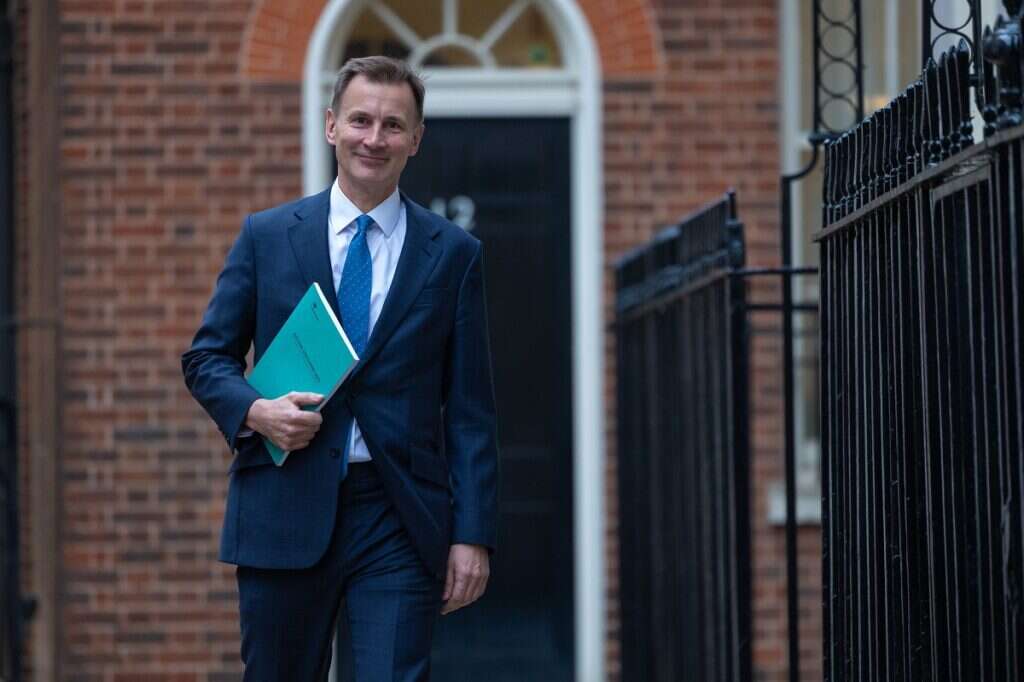
Chancellor Jeremy Hunt used his autumn statement to announce boosts for the UK’s artificial intelligence and quantum computing capabilities, including a new £500m AI investment. The government has also pledged to set up a task force to help small businesses on their digital transformation journeys.

Hunt delivered his update on the government’s tax and spending programmes to the House of Commons earlier today and tried to paint a positive picture of “a country that has turned a corner” following months of low growth and high inflation. However, he made his speech as the Office for Budget Responsibility revealed its latest forecasts, which show the UK economy is set to grow at a slower rate than previously anticipated.
Nonetheless, IT buyers were handed a permanent tax break in the form of the so-called “full expensing” policy, introduced as a temporary measure in March’s spring budget, being made permanent. This means any money spent by a business that pays corporation tax on IT equipment can be deducted from the taxable profits it makes. The government also claims up to 5,000 additional businesses will be able to benefit from R&D tax credits due to changes being made to the system.
More AI funding is on the way
Hunt pledged to invest £500m in artificial intelligence over the next two years. The chancellor has previously stated his ambition for the world’s “next Silicon Valley” to be built in the UK, and AI has become central to the nation’s tech ambitions, with the government hosting an international AI safety summit earlier this month.
Few details have been released about the nature of the investment beyond that it will be spent on “compute power” to “support the UK’s world-leading scientists and AI researchers to continue to make extraordinary new discoveries, benefitting all of society.”
In the spring budget, the government announced it would spend £900m on compute power needed to train and run AI models, and has since announced the purchase of two AI supercomputers, in Bristol and Cambridge. In October it was revealed Edinburgh University will host the nation’s first next-generation exascale supercomputer, with work on this machine scheduled to begin in 2025.
Chintan Patel, CTO for UK and Ireland at Cisco, said such funding is “an essential element to enable the UK AI ecosystem to flourish”. Patel pointed to research recently conducted by Cisco, which shows that only 10% of UK organisations are fully prepared with the infrastructure, data governance and talent in place to fully embrace AI.
“This investment provides a positive good step in unlocking how AI can play a positive role in UK growth,” he said.
Hunt’s quantum mission control
Hunt also used the autumn statement to launch the UK’s five “quantum missions”, which will help the country maintain its strong position in the nascent quantum computing market.
The missions include a pledge to have UK-based quantum computers “capable of running one trillion operations and supporting applications that provide benefits well in excess of classical supercomputers across key sectors of the economy” up and running by 2035, as well pledges to help the NHS and critical infrastructure providers benefit from the exponential increase in compute power quantum systems could offer.
Steve Brierley is CEO of Riverlane, a UK company building a quantum computing operating system. He said: “The quantum computing mission announced today shows the scale of the UK ambition to maintain a lasting, critical role in the global quantum ecosystem.
“Now the industry has proven that building a quantum computer is possible, the next step is to develop the key technologies that can correct the billions of errors currently preventing these devices from becoming useful. It’s great to see the UK commit to becoming more focused in this direction, building on the key areas where it already has an advantage.”
Can the autumn statement help SMEs on their digital transformation journey?
The government has also pledged to “set up a task force with industry to rapidly explore how best to support SMEs to adopt digital technology to improve their productivity.” As reported by Tech Monitor, many small businesses have struggled to take advantage of digital systems, with poor connectivity and high costs hindering adoption.
Julian David, CEO of tech vendor trade organisation techUK, said: “Encouraging the adoption of digital and AI technologies among small businesses will be of huge importance to our future growth and productivity and therefore the newly announced digital adoption task force needs to deliver.
But David said that while the statement “has significant potential to boost investment from the tech sector”, the low growth forecasts mean “there is no room for mistakes and no time to lose”. He said: “The government needs to work at pace alongside the tech sector to put these policies into action and get growth going.”
Whitehall has also been urged to back UK tech by awarding contracts to home-grown vendors. Yesterday it was announced that US big data company Palantir had landed a £330m contract to deliver the NHS Federated Data Platform, the largest IT contract ever handed out by the UK health service. Michael Queenan, CEO of UK-based tech vendor Nephos Technologies, said not giving the contract to a UK bidder represented a “scandalous missed opportunity”. He said: “If that contract was handed to a UK company, the profit would be going right back into our economy which is currently on its knees.
“In fact, the UK government could have created its own centre of excellence, building and running this project and profiting from the data. It could have been a data company for the nation, creating tens of thousands of jobs in the AI space.”
Queenan added that he believes the investments announced in the autumn statement gave “no indication of how this will help British businesses in the long term”.






